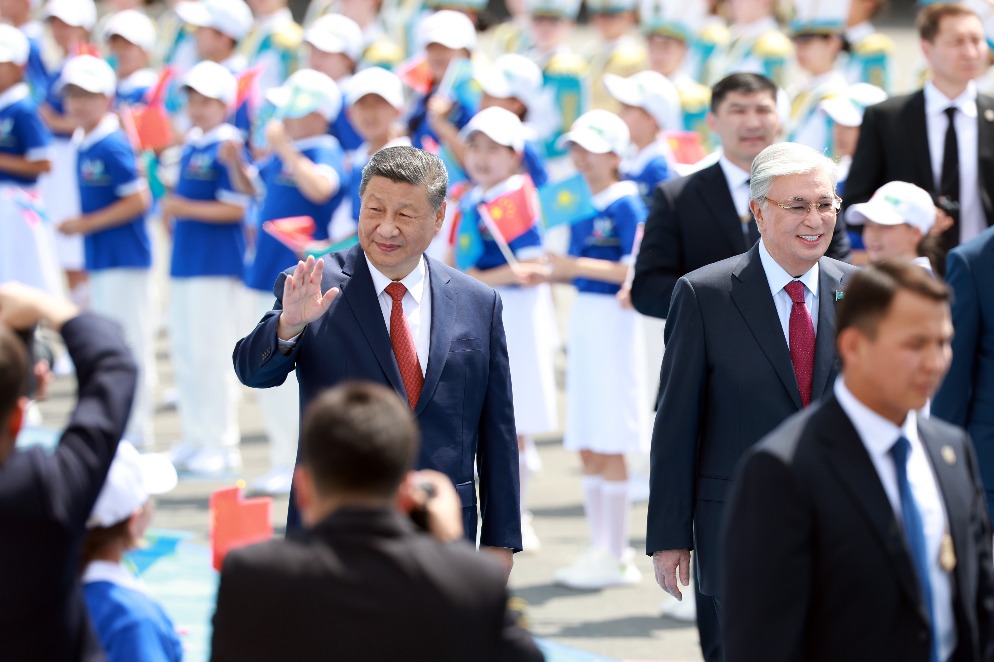Fairer sharing of wealth vital to common prosperity


Common prosperity is a catchphrase used to emphasize that a responsible government should make efforts to ensure that every citizen gets a fair share of the nation's wealth. Sharing is a human trait. For example, toddlers playing together share their toys.
But apart from people, society has other legal persons-companies, for instance. And companies, by their very nature, are highly competitive and have no natural emotions, such as love or the desire to share with others. Companies operate just to make profits.
So it is a responsible government's duty to encourage those humans or companies that lack the drive to share their wealth to contribute to the general public's well-being. The obvious tool to do so is taxation in its various forms. A less obvious but nevertheless effective tool for the purpose is legislation, which makes it mandatory for companies to follow a moral compass-aside from their business charter and other rules.
Common prosperity has practical benefits, because shared wealth means that every member of a society has something to hold on to. When low-income people are encouraged to participate in the success of a society, social stability will automatically follow. And social stability is conducive to economic growth and increasing collective and individual income.
In Western Europe, one of the biggest challenges nowadays is how to include refugees, second-generation immigrants and other marginalized people into the mainstream. Owning a house is the first step toward economic stability and wealth creation. Yet some people own many houses, while others have to pay housing rent for generations.
Because of the low interest rates, mortgage for housing on average could be half of what a person pays as housing rent. And the poor and homeless in Europe don't have enough disposable income to buy even many of the necessities after paying housing rent. Which is not good for the European economy in the long run.
In this regard, the recent Sixth Plenary Session of the 19th Communist Party of China Central Committee, apart from reviewing the Party's major achievements and historical experience, also paid close attention to less favorable examples abroad. This explains why China, since the 18th CPC National Congress in 2012, has gradually put common prosperity in a more prominent position. And after eradicating absolute poverty and building a moderately prosperous society in all respects last year, China is in a better position to realize common prosperity.
Besides, realizing common prosperity is part of the Chinese Dream of national rejuvenation. And looking back at the last two remarkable decades, there is no doubt that China will realize that dream despite the challenges it faces at home and abroad.
At home, Chinese officials have to ensure that companies, which are major wealth creators, fulfill their responsibilities toward other social stakeholders such as workers, creditors and the government, by sharing a part of their income with them. On the individual level, the chief executives and other higher ranking officials, too, have the responsibility of sharing a part of their income with society, in order to help maintain their companies' stability and continuity.
At the global level, China has to make greater efforts to remove the misunderstandings of some Western politicians and media about the country, especially because some in the West claim that the objective of common prosperity is superficial. This is not surprising, because many people in the West believe that only competition can lead to a fair distribution of wealth.
But the widening wealth gap in the West and the conflict between Wall Street and "Main Street" prove their argument wrong. China realizing common prosperity through fair redistribution of income will be regarded by future generations as another historical turning point in China's history.
The author, a foreign exchange scholar at Tsinghua University from 2012 to 2015, is a lecturer at Leiden University and a civil-law notary in The Hague, the Netherlands.
The views don't necessarily reflect those of China Daily.
If you have a specific expertise, or would like to share your thought about our stories, then send us your writings at opinion@chinadaily.com.cn, and comment@chinadaily.com.cn.
































